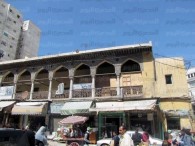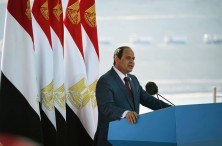Category: ALEXANDRIA
-

Alexandria’s ancient sites face extinction due to stalled renovation
Archaeological sites in Alexandria are facing ruin, with renovation projects by the Antiquities Ministry covering 13 ancient Islamic, Coptic and Jewish monuments stalled due to a shortfall in funding that stretches back many years. Eighty percent of the province’s sites, meanwhile, have not been touched by conservators for tens of years. Archaeologists have told Al-Masry…
-

Plan to restructure Alexandria Port to be delivered in Q1 2016: Minister of Transport
The Port of Singapore is expected to complete its plan to restructure the Alexandria Port’s administration during the first quarter (Q1) of 2016, according to the Minister of Transportation Saad Al-Geioushy. The Port of Singapore is developing a comprehensive plan to reform Egypt’s ports. Alexandria Port is the first port to be addressed in this…
-

New Provincial Governor in Alexandria
Egypt’s President Abdel-Fattah El-Sisi appointed on Saturday 11 new provincial governors. The governors were appointed to the governorates of Alexandria, Suez, Gharbiya, Kafr El-Sheikh, Aswan, Port Said, Sharqiya, Minya, Giza, Qalyoubiya and Beni Suef. Below are brief descriptions of the appointees, five of whom are from police ranks, four from the Armed Forces and two are civil…
-

Egyptian President in a ‘Surprise Visit’ to Alexandria
Egyptian President Abdel Fattah El Sisi made a “surprise visit” to Alexandria on Sunday to personally address and follow up on the coastal city’s sewage problems, reported state-run news agency MENA. Twice in less than a month, the failure of the city’s sewage system to properly drain the intense rain resulted in the flooding of…
-

Investment conference in Alexandria
The Alexandria governorate, in coordination with the ministries of Investment and Local Development, is preparing for an investment conference in October to present the governorate’s investment opportunities, according to Alexandria governor Hani El-Messiry. In a special statement to Daily News Egypt, El-Messiry said that approximately 35 projects in different sectors, worth total investments of approximately…